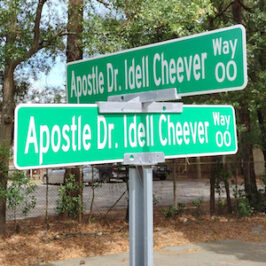By now, millions of us are feeling the stresses of a new decade ahead even as we stay home in lockdown. But life goes on as usual for many. Yesterday, I went to check the mail, and saw my friend Al across the street seemingly returning from a walk. We yelled greetings over the traffic, and would have said more but traffic was so steady, we gave up. Perhaps expected to be grateful for what little encounter we had.
My primary shortcoming in this life is gratitude. Having lived a full life, I’m not really very thankful. And it’s paying off lately, trapped at home, in memories of better days, memories that are hollow offerings, as I can’t go back. I’m realizing just how much of Lot’s wife is in me that I never really knew, in attitude. Charles Demuth knew, and shared what he knew in My Egypt.

Here’s what the Whitney Museum of American Art has to say about Demuth’s startling piece:
My Egypt depicts a steel and concrete grain elevator belonging to John W. Eshelman & Sons in Charles Demuth’s hometown of Lancaster, Pennsylvania. Painted from a low vantage point, the structure assumes a monumentality emphasized by the inclusion of the lower rooftops of neighboring buildings (suggesting the more traditional architecture of smaller family farms) at the bottom of the painting. In Demuth’s image, the majestic grain elevator rises up as the pinnacle of American achievement—a modern day equivalent to the monuments of ancient Egypt. A series of intersecting diagonal planes add geometric dynamism add a heavenly radiance to the composition, invoking the correlations between industry and religion that were widespread in the 1920s. Nonetheless, Demuth may have intended the title to allude to the slave labor that built the pyramids, intimating the dehumanizing effect of industry on the nation’s workers. Moreover, the pyramids and their association with life after death might also have appealed to the ailing artist, who was bedridden with diabetes at the time of the painting’s execution.
But Demuth isn’t in a situation where he “may have” an intent, and the intent of the copy above which is beneath the image on the museum’s website is wrong. At least, partly. We don’t have a historical account that attributes the Hebrews as slaves in Egypt building “the pyramids” but we do have a written record of the Hebrews as slaves left to wander in the desert for 40 years while yearning for a return to slavery. Nonetheless.
That’s what Demuth felt. I was born a short distance from Demuth’s home in Lancaster, well a few miles as the crow flies, in Harrisburg, and my boyhood was spent in Pennsylvania. Even as an adult, I owned a home a few hours from Lancaster, and had a modeling agent based in Lancaster who got me jobs for more than a decade. So much for which to be thankful in just those few sentences.
Lancaster is the heart of the Bible Belt in Pennsylvania. Think Witness with Harrison Ford and the Amish. Demuth was heavily influenced by the rampant religious culture of his home, he could not help but be. Even the Whitney notes the “heavenly radiance” in his painting, which is no doubt a reference by Demuth to the “cloud by day” and “fire by night” that accompanied the Hebrews who wandered the desert for 40 years after being freed from slavery in Egypt. God shines down on Demuth’s Egypt, on the Hebrew slaves, and on my Egypt.
But God has expectations on being freed from Egypt, and desire to return is not one of them. Those Hebrews suffered in that desert, and the Apostle Paul says they did so partly so that we might learn from them. They suffered for their ingratitude, ungratefulness. Wanting to be back with the “leeks” instead of with the manna they were provided, they brought malaise upon themselves. They grew dull in that desert. Bored with living. Disenchanted.
Disenchantment. It’s a mysterious place to be. A desert of the heart. Parched, sleepy, and lonely. It’s not that nothing helps, it’s that disenchantment doesn’t care if it’s helped. It’s over it. It’s apathy run amok. Not in the sense that it’s time to break a pandemic lockdown, but in the sense that lockdowns don’t really matter. There’s nothing to break.
According to the Whitney, Demuth suffered from diabetes. He knew debilitation. He knew non-debilitation from healthier days that one would long to return to, to own again. Heaven has its perks, but the silos bursting with grains call us. Technologies beckon. We want more to pile on our more. It’s never enough.
But the problem is that we aren’t even grateful for all that we’ve had before, let along what’s coming. And that’s the rub. What was coming for Demuth, what’s coming for me, what’s coming for you, is a state of immeasurable loss. What’s there to be thankful for?
Everything. All of it. Every waking moment, every next breath. We don’t understand it, we didn’t ask for it, but we’re in it. When the memory worms in to seduce, I’m renewing my mind to be thankful I had it, not yearning to return to it. And when it’s unrelenting, bombardment of former days and great loss, I’m thankful I had those moments that led up to the loss. No, I’m not happy about loss. I’m looking for renewal. Loss leads to newness. Can I bring my dead pets back? No. Were we wonderful together? Yes. All the lost faces and relationships? Gone. But a prayer goes up for those who live yet come to mind.
Speaking of pets, this is Riley. Riley is a stray that has lived in the neighborhood for at least four years. Riley has a lump on the mouth, making eating difficult. Riley stayed on the porch for several weeks while I took care of her, unable to bring her in as we have three cats already. So Riley stays outside.

You may not see it, but Riley loves me. She’s loving me through that the gaps in her metal mesh chair. Riley is a sweetheart. She’s grateful each and every moment. I don’t give her everything she wants or needs. But I loved her back to health recently. Yes, I feel guilty not giving her an inside home.
Despite circumstances, obstacles, and shortcomings, we connect, perhaps realizing we are grateful for one another. I love Riley. Do I need her? I don’t know. Maybe I do. I’m grateful she’s alive. She’s a Godsend. I want to give her a permanent home, make her life easier.
Our neighbor cut down all the trees and foliage on his property, and that means the morning glory vines we shared between us were hacked off to nothing but a few loose vines. It was a bad decision on his part that affected others, including birds and squirrels that relied on that greenery. One squirrel, especially, has been, well, squirrely, knocking plants from the balcony and eating what it can get of the birdseed.
It’s been a few weeks, and the morning glories are back with a vengeance. Bursting forth in unison, in harmony, almost in gratitude. They learned the hard way. As did Demuth. As do I. Renewing the mind for gratitude strikes at the heart of living a wonderful life. it’s relief. And it’s worth it.






